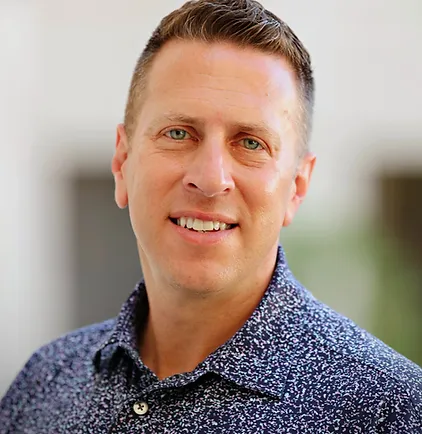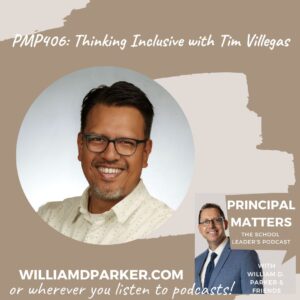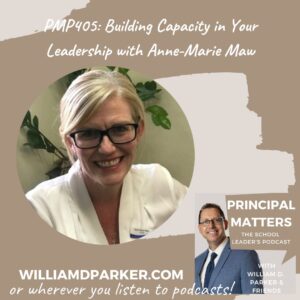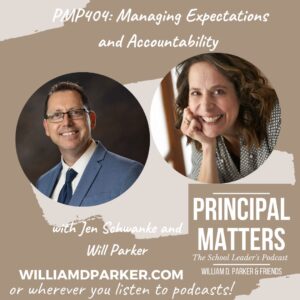Podcast: Play in new window | Download
Cale Birk is a former teacher, high school principal, and District Head of Innovation from British Columbia, Canada. In 2015, one of his schools was named one of the first Model PLC Schools in Canada. Feeling like he was only scratching the surface with collaboration, Cale wrote the book PLC 2.0 – Collaborating for Observable Impact in Today’s Schools helping leaders and teachers go deep through The Observable Impact Model – used now by schools around the world. After working with schools and leaders at all levels of the system with OI over the last few years, Cale began work on his newest book, Navigating Leadership Drift with co-author, Dr. Michael McDowell. Navigating Leadership Drift is about giving leaders the tools to build leadership efficacy so we can hang on to the leaders in our school at every level. Cale has been a keynote speaker, breakout speaker, and TED Talker around North America and the Pacific Rim, and he truly loves to equip leaders with tools they can actually use right away in their staff meetings, with their teams, and even with their students!
Listen to the entire conversation for great takeaways. Here are some highlights:
Cale’s Background

- From the joys of keynote speaking to giving TED Talks, Cale cherishes equipping leaders with tangible tools for immediate implementation.
New Book Navigating Leadership Drift
- Inspired by witnessing a drained Midwest Superintendent, the book examines the overwhelming demands on leaders.
- Main message: Shift from mere action to observable impact.
- Finding humor, recognizing drifts, and tools to tackle them. It’s about leadership efficacy.
Leading from the Middle
- Understanding the ‘Tragic Gap’: Navigating corrosive cynicism and irrelevant idealism.
- The difference between action and impact; why both don’t always align.
- The central role of a leader: Leading by focusing on CONVERSION.
- From current practices to knowledge.
- Turning knowledge to action.
- Reflecting on action to gauge its impact.
- The mantra: “What did we learn? What’s next?”
Promoting Rigorous Learning
- The SET model: Clarity, Resilience, and Observability.
- The balance of giving students choice while ensuring alignment with standards.
Supporting Teacher Teams
- The SET vision: Understand and assess the reality.
- Go beyond common assessments; look at teaching methodologies and tasks.
- Embrace reality as a learning tool, not a metric of inadequacy.
Staying Motivated as a Leader
- Applying the Design, Implement, Observe, Document framework for continuous personal growth.
- Dopamine moments in learning and sharing those moments with the community.
Wrap Up & Resources:
- Connect with Cale at https://www.birklearns.com/
- Final Advice: Continually question – “What observable impact does this action have in the classroom?”. Dive deeper than mere data.
- Join the conversation using #chooseimpact.
Stay tuned for more insightful conversations on leadership, education, and change. Don’t forget to subscribe, rate, and share!
Three Leadership Takeaways from Dr. Nick Davies

Principal Matters is proud to include contributing posts from Dr. Nick Davies, an elementary associate principal for Vancouver Public Schools. He is a Principal Matters Associate and posts his own weekly podcast version of the following content at “Monday Mornings with Dr. Nick” which can be found at https://www.linkedin.com/in/nick-davies-education/
On the Other Side of Discomfort is Joy
Dr. Colleen Kelley is a college professor in Arizona who is passionate about making Chemistry, specifically Organic Chemistry, accessible to all students. Dr. Kelley was the first member of her family to go to college, and she joined the Army to pay for it. More recently she has started making comic strips about Organic Chemistry geared towards kids aged 8-10. You can find more information about her work here. https://kidschemicalsolutions.com/ Dr. Kelley focuses on creating equitable outcomes for all students, particularly around getting underrepresented students into medical school.
No Course should be a gatekeeper
Because Dr. Kelley is focused on getting more underrepresented students into medical school, she has looked for bottlenecks in the educational system. That bottleneck is often Organic Chemistry, which has a failure rate of around 80%. That means that 80% cannot make it to medical school, and all too often underrepresented students are overrepresented in that 80%. She called this a civil rights issue. To her, she has decided she is done accepting the status quo. She knows that early intervention is needed, but there aren’t resources for this work. This is where her work with younger students comes in. She has been able to get elementary-aged students to learn about Organic Chemistry, and now she is “trying to be a loud old lady” (her words, not mine!) about sharing this information. Her advice to me was twofold: If you are looking to do something new in your classroom or school, don’t let fear be the reason not to try it! And, on the other side of discomfort is joy! What/where/who are the ‘gatekeepers’ in your system and how can they be addressed to increase access for all stakeholders?
What I’m teaching isn’t all that important
It is, but it also isn’t! Dr. Kelley talked about how we only have a small window of time with our students. What are students going to take from your classroom or your school? Specifically for teachers, what do your grades tell the students? She tries to find more meaning to add to the grades so students get more out of them. She also understands that everyone has good and bad days, so how does that impact how students are assessed? Dr. Kelley said we need to be gracious with students’ personal choices, such as not choosing to do work or coming to class unprepared. If those things happen, have conversations about where students are and why.
Connect with People Authentically
Continuing on the idea of having conversations with students, Dr. Kelley talked about how connecting with students authentically has become much more important to her as she has moved through her career. This can be as simple as sharing what type of music you listen to or shows you like to watch. Let students get to know you as a human because the chatting and connection brings joy to all of us. This idea of connecting authentically extends beyond her classroom as well. She has been building a following around her comic books and has received attention from articles, podcasts, and media appearances. She has built the following one person at a time, and she continues to reach out to people individually to spread her message and get to know them. That is how the two of us got connected and I’m glad we met!
When I asked about book recommendations, Dr. Kelley gave me three to think about:
- Stillness – Ryan Holliday
- Deep Work – Cal Newport
- Outlive – Bill Gifford and Peter Attia
Thank you for your time and advice!


